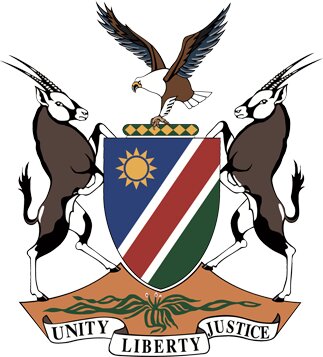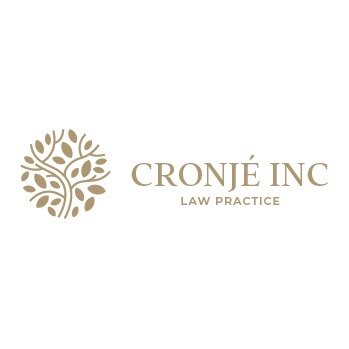Best Conveyancing Lawyers in Namibia
Share your needs with us, get contacted by law firms.
Free. Takes 2 min.
Free Guide to Hiring a Real Estate Lawyer
Or refine your search by selecting a city:
List of the best lawyers in Namibia
About Conveyancing Law in Namibia
Conveyancing in Namibia refers to the legal process of transferring the ownership of immovable property, such as land or houses, from one person or entity to another. This process involves a series of legal steps and documentation to ensure that the property transfer is lawful, transparent, and binds all relevant parties. In Namibia, conveyancing is typically handled by qualified legal professionals known as conveyancers, who are admitted attorneys specializing in property law.
Why You May Need a Lawyer
There are several situations where you may need the expertise of a conveyancing lawyer in Namibia:
- Buying or selling a house, business premises, or plot of land
- Registering or cancelling a mortgage bond on a property
- Transferring property as part of an inheritance or family arrangement
- Subdividing or consolidating property plots
- Rectifying errors in the Deeds Registry regarding property ownership
- Resolving disputes regarding property boundaries or ownership claims
- Securing advice on legal paperwork and compliance with Namibian property laws
- Dealing with property as a result of a divorce settlement
Conveyancing involves multiple steps and significant legal documentation. A lawyer ensures that your rights are protected and the transfer is processed efficiently and correctly.
Local Laws Overview
Conveyancing in Namibia is governed primarily by the Deeds Registries Act, the Sectional Titles Act, and related property legislation. Here are key aspects of local laws relevant to conveyancing:
- All transfers of immovable property must be registered in the Deeds Registry of Namibia to be lawful and enforceable.
- Only admitted conveyancers can prepare, submit, and register transfer documents at the Deeds Registry.
- If a property is mortgaged, any existing mortgage must be settled or transferred as part of the registration process.
- Transfer duty or stamp duty must be paid to the Ministry of Finance prior to property transfer.
- The seller is usually responsible for appointing the conveyancer, but the buyer generally pays the conveyancing fees and costs, unless agreed otherwise.
- Sectional titles and developments have specific requirements, including body corporate consents and sectional plans.
- Foreign nationals may buy and own property in Namibia, subject to certain restrictions and tax implications.
Frequently Asked Questions
What is a conveyancer and why do I need one in Namibia?
A conveyancer is a specialized attorney who is legally authorized to handle the transfer and registration of property in Namibia. Their role is critical to ensure that a property transaction is valid and binding according to Namibian law.
What are the main steps in the conveyancing process?
The main steps include drafting the sale agreement, obtaining necessary documents from both parties, applying for clearance certificates, paying transfer duty, preparing and signing transfer documents, lodging the documents at the Deeds Office, and finally, registration of the property in the new owner’s name.
How long does the conveyancing process take in Namibia?
The process can take between two and three months, but the duration may vary depending on the complexity of the transaction and how quickly required documentation is submitted by both parties.
Who pays the conveyancing fees?
Typically, the buyer is responsible for paying the conveyancing fees, unless the parties have agreed otherwise. However, the seller generally appoints the conveyancer.
Are there additional taxes or duties when buying property?
Yes, transfer duty or stamp duty is payable to the Ministry of Finance before transfer. The amount depends on the purchase price and property type.
Can foreigners buy property in Namibia?
Yes, foreigners may buy and own property in Namibia, although certain restrictions may apply, and tax consequences should be considered. It is advisable to seek legal advice before proceeding.
What documents are required for conveyancing?
Key documents include the deed of sale, identity documents of both parties, the property's title deed, rates and taxes clearance certificates, and proof of payment of transfer duty.
What happens if there are existing bonds on the property?
Any existing mortgage bond must be cancelled with the relevant bank as part of the registration process, or a new bond can be registered over the property as part of the transaction.
Is it possible to transfer part of a property or subdivide it?
Yes, property can be subdivided or portions transferred, but this requires compliance with municipal planning bylaws and additional applications and approvals.
What should I do if there is a dispute regarding property boundaries or transfers?
Contact a conveyancing lawyer immediately. They can assist in reviewing the property title, surveyor’s diagrams, and mediate or take legal steps to resolve the dispute.
Additional Resources
If you need more information or assistance regarding conveyancing in Namibia, the following resources and organizations can be helpful:
- Ministry of Justice - Deeds Registry Office: Responsible for registering property and maintaining official records
- Law Society of Namibia: Can assist in finding qualified conveyancers and provide information on professional conduct
- Ministry of Finance: Handles payment of transfer duties and related property taxes
- Local municipal and town council offices: For property rates, zoning, and planning information
- Legal Aid Directorate: Offers assistance for those who qualify for legal aid services
Next Steps
If you are considering buying, selling, or transferring property in Namibia, follow these steps:
- Identify and engage a qualified conveyancing lawyer or law firm experienced in property matters.
- Prepare and gather all relevant documentation, such as personal identification, sales agreements, and property titles.
- Discuss the likely fees, timelines, and tax obligations with your conveyancer upfront.
- Ensure you understand and comply with any municipal or national regulations affecting the transaction.
- Proceed with the transaction under the guidance of your lawyer, responding promptly to requests for information or documentation.
- Keep copies of all signed and registered documents for your records once the transfer is complete.
For complex matters or large property transactions, timely legal advice reduces risks and helps ensure a smooth and successful transfer of property rights.
Lawzana helps you find the best lawyers and law firms in Namibia through a curated and pre-screened list of qualified legal professionals. Our platform offers rankings and detailed profiles of attorneys and law firms, allowing you to compare based on practice areas, including Conveyancing, experience, and client feedback.
Each profile includes a description of the firm's areas of practice, client reviews, team members and partners, year of establishment, spoken languages, office locations, contact information, social media presence, and any published articles or resources. Most firms on our platform speak English and are experienced in both local and international legal matters.
Get a quote from top-rated law firms in Namibia — quickly, securely, and without unnecessary hassle.
Disclaimer:
The information provided on this page is for general informational purposes only and does not constitute legal advice. While we strive to ensure the accuracy and relevance of the content, legal information may change over time, and interpretations of the law can vary. You should always consult with a qualified legal professional for advice specific to your situation.
We disclaim all liability for actions taken or not taken based on the content of this page. If you believe any information is incorrect or outdated, please contact us, and we will review and update it where appropriate.
Browse conveyancing law firms by city in Namibia
Refine your search by selecting a city.
















